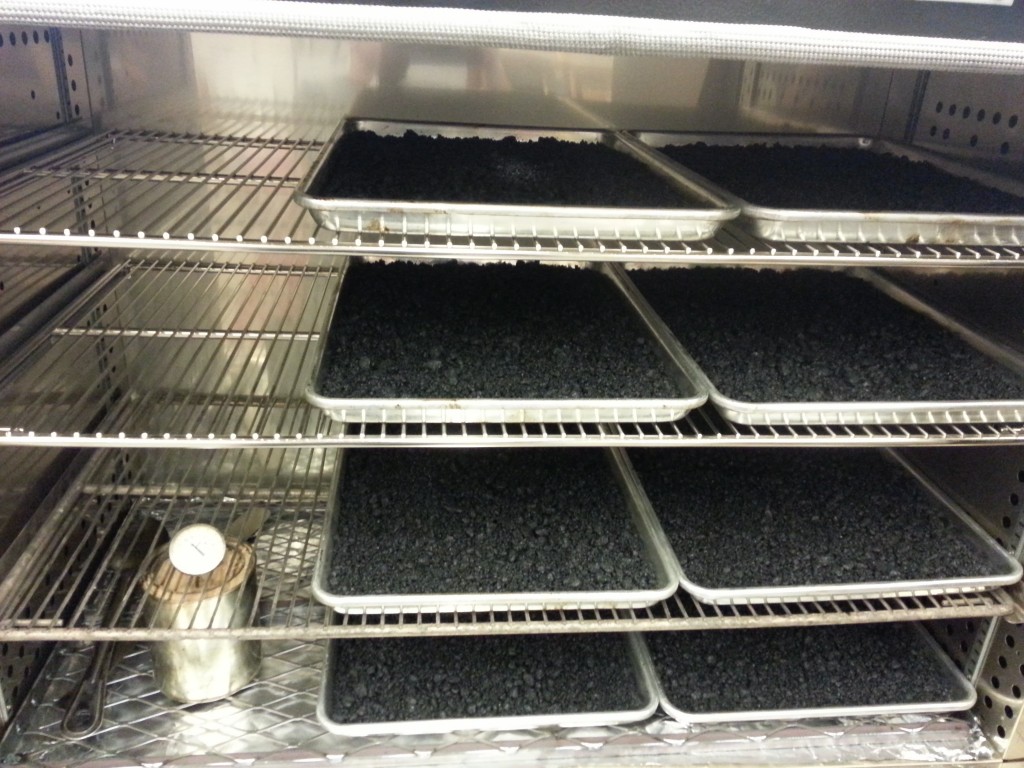Asphalt pavement represents a major investment in infrastructure in the U.S. and we are all familiar with potholes that develop as asphalt ages. An accelerated laboratory aging procedure is needed to predict the long-term performance of pavement and better guide mixture design. Drs. Y. Richard Kim and Cassie Castorena and PhD students Michael Elwardany and Farhad Yousefi Rad are leading a project funded by the National Cooperative Highway Research Program (NCHRP) to develop a laboratory procedure to simulate the long-term aging of asphalt mixtures. Long-term aging results from oxidation that leads to increased hardness and brittleness of asphalt concrete, consequently increasing cracking susceptibility of pavements. The research team evaluated several alternatives and showed that a procedure based on oven conditioning of asphalt concrete in a loose mix state is best in terms of versatility, cost, and efficiency. The research team is now calibrating this procedure to reflect field conditions based on a broad set of materials and field cores acquired from pavements throughout the United States. The ability of the laboratory procedure to replicate real-world field conditions is being evaluated based on comparison of samples extracted from the laboratory with those extracted from the field. Collaborators in this effort include Arizona State University, Nichols Consulting Engineers, and Western Research Institute.

